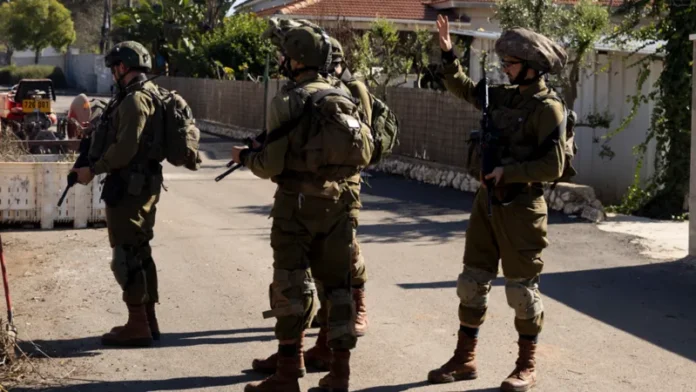Israel launched airstrikes on two southern Lebanese villages on Monday evening, killing at least nine people, in retaliation for an attack by Hezbollah on an Israeli military post.
Both sides are accusing each other of violating the ceasefire agreement brokered last week, highlighting the fragile nature of the truce.
The Israel Defense Forces (IDF) confirmed it targeted Hezbollah positions and infrastructure “throughout Lebanon,” asserting that its actions were in line with its commitment to the ceasefire.
The IDF stressed that it was responding to what it called a provocation by Hezbollah, which fired mortars at an Israeli army position in the Mount Dov area, a disputed region on the Israel-Lebanon border known internationally as Shebaa Farms.
Despite the airstrikes, Israel claimed no injuries from the Hezbollah mortar attack, emphasizing that the response was a “defensive warning” strike.
The attack by Hezbollah on Mount Dov was characterized as an effort to protect its interests and assert its position in the face of what it called Israeli violations of the ceasefire terms.
Israeli Prime Minister Benjamin Netanyahu swiftly condemned the Hezbollah attack as a “severe violation of the ceasefire” and pledged a strong response. Netanyahu had previously warned that Israel would not hesitate to take military action if Hezbollah breached the ceasefire agreement.
His remarks signal the ongoing tension surrounding the terms of the truce, which were agreed upon last week after over a year of escalating conflict between Israel and Hezbollah.
The ceasefire deal, which was brokered by the United States and France, aimed to end 13 months of violence between the two sides.
Under the agreement, Hezbollah is required to withdraw its forces from southern Lebanon within 60 days, while Israel is expected to pull its military presence from the region within the same timeframe.
The international community viewed the ceasefire as a crucial step in preventing further escalation and securing peace in the region.
However, Monday’s exchange of fire underscores the challenges in enforcing the ceasefire and the volatility of the situation.
The Israeli airstrikes and Hezbollah’s retaliatory actions highlight the deep mistrust and hostility that still exist between the two sides, despite the diplomatic efforts to stabilize the situation.
The violence also raises concerns about the broader impact of the conflict, particularly in southern Lebanon, where civilian casualties have been reported.
Lebanese health officials confirmed that at least nine people were killed in the Israeli strikes on the villages of Al-Qlaileh and Alma al-Chaab, both located near the border with Israel.
The fragile ceasefire agreement is now at a critical juncture, with both sides testing the limits of the truce.
While the international community continues to call for calm and the full implementation of the agreement, the latest flare-up has raised doubts about the long-term prospects for peace between Israel and Hezbollah.
The situation remains tense, and the potential for further violence remains high, as both sides prepare for the next steps in the ongoing conflict.

